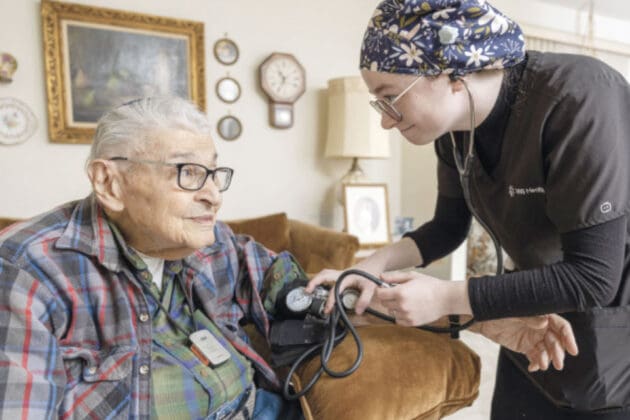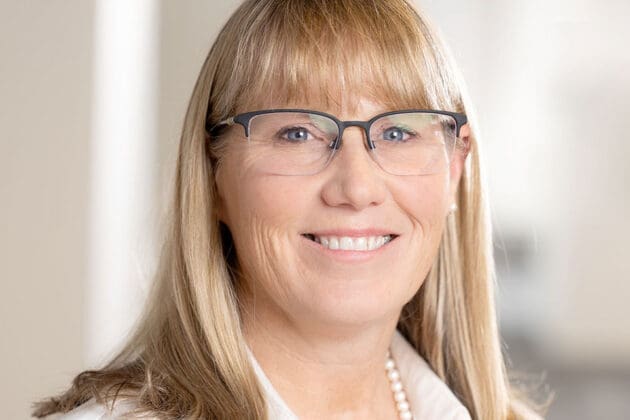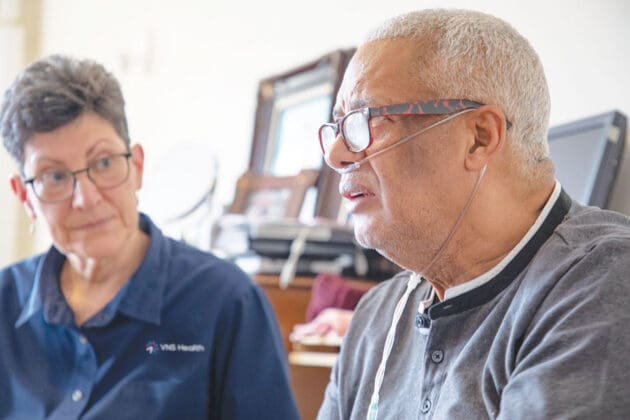Jim Rolla, Senior Vice President of Personal Care, talks about how VNS Health is tackling the ongoing home health aide shortage in the home care industry. He goes into detail about how the organization is focusing on retaining team members and recruiting new ones.
With the number of older Americans steadily increasing, there’s a growing shortage of home health aides (HHAs) nationwide. What is VNS Health doing to address this issue?
Recruitment and retention are top priorities for us. We’re very focused on growing and maintaining our HHA workforce, and we’re seeing good results. In our most recent employee engagement survey that we conducted earlier this fall with our HHAs, the percentage of aides who said they would recommend VNS Health and feel that it’s a great place to work was a whopping 89%. Our retention rate has also increased substantially. And while recruitment remains a challenge, we’re seeing an uptick there, as well.
What have you been doing to get these strong results?
Much of what we’re doing traces back to the height of the COVID-19 pandemic. When our aides stopped coming into our offices in person, we had to develop new ways to connect with them. One of the most important things we did was completely revise the training and workflow for our HHA supervisors, so they could devote their time to supporting the HHAs they manage and building those relationships. We also ramped up our digital communications to the HHAs. Pre-COVID, most contact with HHAs was through phone calls and in-person meetings. We now have a dedicated online resource center for our HHAs, which has been a huge success at keeping them updated and engaged. We also implemented a new mobile phone app with Home Health Aide Exchange—or HHAx for short. This app gives HHAs easy access to all necessary information in one place. Utilization rates for the app are increasing, and our aides who use it report they really like its convenience. And we have a streamlined digital scheduling system that lets HHAs directly accept cases using their smartphones.
VNS Health recently got federal funding support for HHA recruitment and retention. Can you tell us about that?
We received $12 million through the American Rescue Plan that Congress passed in 2021. Almost all of that has gone either toward retention and COVID-related bonus payments for our current HHAs to reward their heroism during the pandemic, or to develop hiring strategies for regions where HHA recruitment is especially challenging for us. We’re now disbursing the last of those federal funds. We’re also investing in a new bonus program that we’re very excited about, which will launch early next year. Engaging HHAs and providing them with regular feedback “is critical,” says Rolla. “Home health aides are an extremely dedicated group, and they want to be recognized for the work they do.”

What does this new bonus program involve?
Our new program, which we launched in January 2023, is a collaboration with a company called Caribou Rewards that specializes in customized incentive plans. It lets HHAs accumulate points toward bonus payments when they hit certain goals, like accepting more cases per week or sharing a job opening with friends on social media. The program also sends encouraging digital prompts along the way, and it alerts the aide whenever a bonus is paid out and explains what the bonus is for. This kind of feedback and engagement is critical. Home health aides are an extremely dedicated group, and they want to be recognized for the work they do. It’s not just about the money—although that’s important, too.
Looking ahead, what is the key to sustaining an adequate HHA workforce over the long run?
The health care industry needs to start thinking about the HHA workforce in a different way. Besides ensuring their physical health and safety, for example, we have to address their mental health needs. The job of an HHA is very hard, and we sometimes take that for granted. In addition, we need to continue to look for ways to expand the role of HHAs and make sure we’re giving them opportunities to advance. Above all, there needs to be an economic awakening. Everyone is in favor of raising HHAs’ wages, but there has to be funding in place to pay for it. VNS Health has done a lot to raise awareness about the value of the work that HHAs do, and we’ll keep doing so. I think the industry is going to continue to move toward raising HHA wages and making this a more attractive career option, and we’re going to be leading the way in helping to make that happen.


